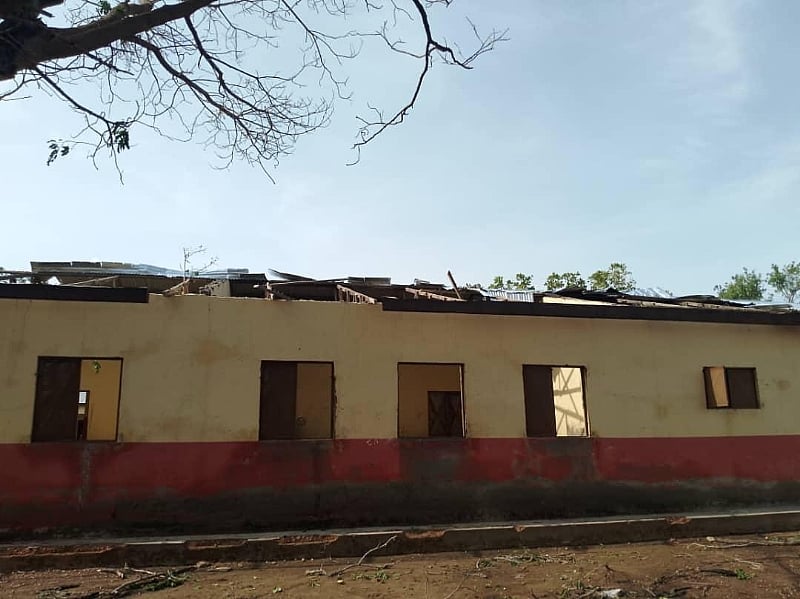The Jumo community in the Wa East District of Ghana has been severely impacted by a violent rainstorm, leaving hundreds of school children without classrooms and rendering many families homeless. The storm, which lasted approximately an hour, ripped off the entire roof of the six-unit classroom block at the Jumo Basic School, disrupting academic activities and leaving the community in despair. The newly constructed Junior High School (JHS) block, nearing completion and awaiting commissioning, also suffered significant structural damage. Beyond the educational infrastructure, over 25 houses in the community were damaged, forcing residents to seek temporary shelter with relatives and highlighting the widespread devastation caused by the natural disaster.
The destruction of the school buildings poses a significant challenge to the education of the children in Jumo. With the complete loss of the primary school roof and substantial damage to the almost-finished JHS block, the community is left with no suitable learning environment. This disruption to education could have long-term consequences for the children’s academic progress and overall development. The loss of homes further exacerbates the situation, adding to the emotional and physical strain on the affected families. The combined impact of these losses has left the Jumo community in dire need of assistance to rebuild their lives and ensure the continuity of education for their children.
Moses Kankpan, the Assembly Member for the Buffiama Electoral Area, confirmed the extent of the damage to the Ghana News Agency (GNA), painting a grim picture of the devastation. He emphasized the urgency of the situation, stating that the community is in desperate need of support. Their immediate priorities include providing alternative learning spaces for the children and finding suitable housing for the displaced families. The destruction of the school buildings has also created a logistical challenge for reopening after the incident, further emphasizing the need for swift intervention and support.
Mr. Kankpan appealed to the government, non-governmental organizations (NGOs), and philanthropic individuals to extend their assistance to the Jumo community. He specifically highlighted the need for relief items such as roofing materials, boards, cement, and financial aid to facilitate the reconstruction of the school buildings and homes. The provision of these materials would enable the community to quickly rebuild their infrastructure and restore a sense of normalcy to their lives. Financial support would also be crucial in addressing the immediate needs of the affected families, such as food, clothing, and temporary shelter.
While the National Disaster Management Organization (NADMO) has assessed the damage, no tangible support has yet been provided to the community. This delay in aid delivery underscores the urgency of the situation and reinforces the need for immediate action from all stakeholders. The longer the community waits for assistance, the greater the impact on the education of the children and the overall well-being of the residents. The prompt provision of relief materials and financial assistance is essential to mitigate the long-term effects of this disaster and help the Jumo community recover.
The situation in Jumo underscores the vulnerability of communities to natural disasters and the importance of preparedness and timely response. The destruction caused by the rainstorm highlights the need for robust disaster management systems and the crucial role of government, NGOs, and individuals in providing assistance to affected communities. The appeal from Mr. Kankpan serves as a call to action for all stakeholders to come together and support the Jumo community in their time of need, enabling them to rebuild their lives and ensure a brighter future for their children. The provision of adequate support is not only a humanitarian imperative but also an investment in the long-term resilience and development of the community.














